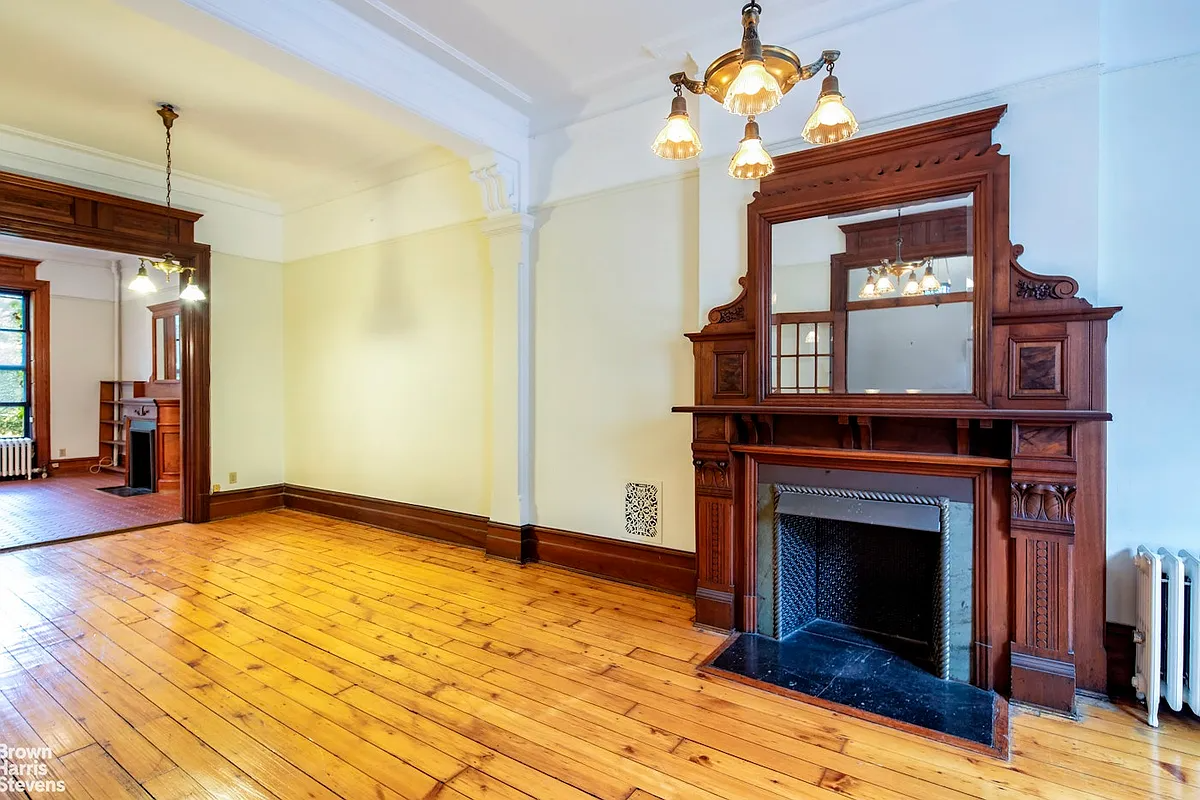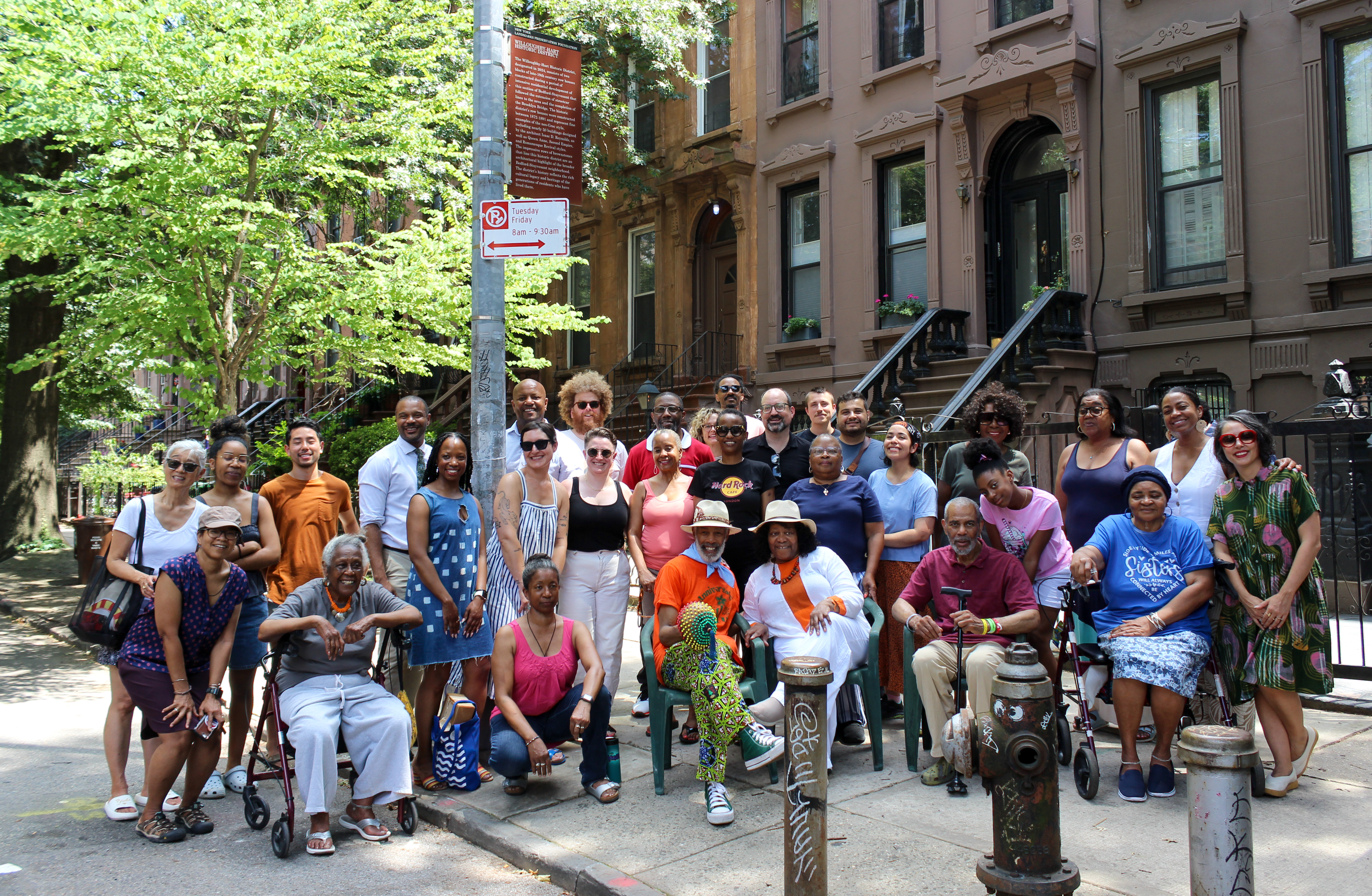Walentas Hotel Awarded Tax-Free Funds
The New York City Capital Resource Corp voted yesterday to approve $15 million in tax-exempt bond funding to jump-start a 73-room hotel project by Two Trees Management at the corner of North 11th Street and Wythe Avenue in Williamsburg; as part of the conversion, the Dumbo-based developer will tack on a 10,000-square-foot addition to the…

 The New York City Capital Resource Corp voted yesterday to approve $15 million in tax-exempt bond funding to jump-start a 73-room hotel project by Two Trees Management at the corner of North 11th Street and Wythe Avenue in Williamsburg; as part of the conversion, the Dumbo-based developer will tack on a 10,000-square-foot addition to the 41,100-square-foot former textile factory that it purchased last year for $6 million. As part of the condition of the deal, Two Trees must close on the financing by the end of the year and begin construction immediately. Crain’s cites an opening date of mid-2012 for the hotel which seems a tad ambitious to us. Tucked into the last line of the Crain’s article was this interesting tidbit: Marlow & Sons will be providing the food for the hotel. Nice choice.
The New York City Capital Resource Corp voted yesterday to approve $15 million in tax-exempt bond funding to jump-start a 73-room hotel project by Two Trees Management at the corner of North 11th Street and Wythe Avenue in Williamsburg; as part of the conversion, the Dumbo-based developer will tack on a 10,000-square-foot addition to the 41,100-square-foot former textile factory that it purchased last year for $6 million. As part of the condition of the deal, Two Trees must close on the financing by the end of the year and begin construction immediately. Crain’s cites an opening date of mid-2012 for the hotel which seems a tad ambitious to us. Tucked into the last line of the Crain’s article was this interesting tidbit: Marlow & Sons will be providing the food for the hotel. Nice choice.
Billyburg Hotel Gets Green Light from City [Crain’s]
Jed Walentas Gets His W’burg Welfare for Swanky Hotel [NYO]
W’burg Hotel Financing Up for Review, Debate [Brownstoner]
Two Trees Closes on W’burg Hotel Property [Brownstoner]





Thwack – The developer here was only considered after other deals fell through. Also, I think I heard banks weren’t financing hotels so it’s not like this project could have happened on its own in the current environment. Stimulus funds are supposed to be applied to shovel ready projects. Sure, the developer is getting a break here in paying a lower rate, but without that subsidy, there would be nothing. When you try to keep projects in the hands of the private sector, it’s to be expected that they will need financial motivation to do deals.
BHO – yes, tax exempt financing is a tax break to the purchaser of the bonds – but that break comes with a lower interest rate. Sounds like a wash to me.
tax exempt bond financing = tax break
***Bid half off peak comps***
It isn’t use it or lose it. It’s use it AND lose it:
The financing may be “tax-exempt”, but the only people who are going to be buying those bonds are people who have high incomes to begin with and are using these bonds to produce tax-free income.
Without the subsidy, one could expect that the financing would have gone through at roughly 7% — generating roughly 1MM of interest per year, which would have been taxed at 40% (federal) and 13% (state+city).
So, effectively, WE are giving the developer roughly 1/2M PER YEAR in subsidies — 5-10 million over the life of the bonds.
In theory, this should start paying higher property taxes, but usually they are deferred for a while, so it may or may not be a good investment for us (i.e. the taxpayers).
My guess is not — but this serves as a reminder that politicians are pretty terrible negotiators, and that there’s no free lunch.
ah, thanks for explaining it wellheythere!
*rob*
Like other posters have written, it’s use it or lose it and it’s just access to tax exempt financing – i.e. Walentas pay a lower interest rate. Also, with the tight timeline to get the deal done, it makes sense to work with an experienced developer.
Rob, the reason that new luxury condos do not have to pay taxes for 10-25 years is complicated, but simply put it goes like this: NYC doesn’t control the taxation system within the City directly – Albany does. For political reasons, the taxation system is set up by the State so that single family homeowners and owners of old coops pay way less in taxes than owners of new condos and landlords of rental buildings as a proportion of the homes’ value. For example, what do you pay in rent? If it’s $12,000 annually, then your landlord pays the City approximately $4,000 – $4,500 annually in real estate taxes just for your apartment. That’s more than a lot of multimillion dollar houses in Park Slope pay.
About 30 years ago, when these tax exemptions for new construction were enacted, no new residential construction had happened in the city for years. This was because the tax burden for new construction buildings made new construction financially unfeasible. The City government couldn’t fix this by making the taxation system equitable because the State controls real estate taxation in the City. The tax exemptions were a workaround that the City was legally able to enact. Rather than pay an equitable tax bill from the get-go, new rental and condo housing gets a multiyear tax holiday before reverting to massive, unsupportable tax bills. It’s a clumsy, stupid system, but it was politically feasible and it helped spur lots of new housing.
As for why a cash-rich developer is getting public subsidies to build a luxury hotel – beats the hell out of me.
They aren’t getting a tax break. They’re accessing tax exempt bond financing from the Federal government. They aren’t using any City money or City tax incentives.
Construction jobs are temporary. Hotel jobs don’t pay shit. Especially with ramping commodity/energy/operating costs due to QE2!
Ishtar – kerBOOM! Like option ARM’s.
Mid 2012 is not all that ambitious for an existing structure. Again, temporary construction jobs.
***Bid half off peak comps***
Butterfly, this money is from the Federal Stimulus money awarded to New York. If they don’t use it, they have to give it back to the Federal government.
Also, Brownstoner, what’s so “ambitious” about this project? It seems less ambitious to me than “The Willamsburg” hotel project down the street which is basically complete.